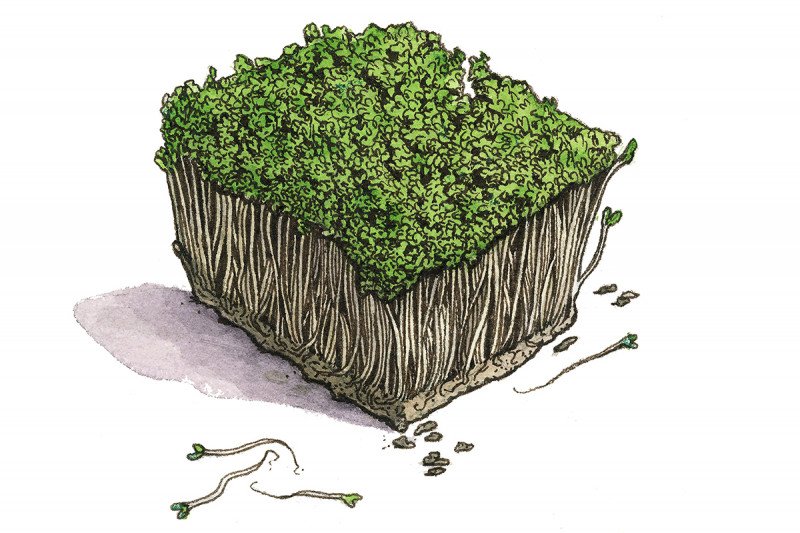
For Patients & Caregivers
Tell your healthcare providers about any dietary supplements you’re taking, such as herbs, vitamins, minerals, and natural or home remedies. This will help them manage your care and keep you safe.
Broccoli sprouts are young broccoli plants that have many nutrients. Broccoli sprout supplements come as tablets, capsules, and powder.
Broccoli sprouts are used to:
- Prevent cancer
- Fight infection caused by Helicobacter pylori, a type of bacteria that infects your stomach
- Stomach ulcers
It’s generally safe to include broccoli sprouts in your diet. They can be eaten raw or cooked. Talk with your healthcare providers before taking them as supplements. Supplements are stronger than the sprouts you would add to your food.
Supplements can also interact with some medications and affect how they work. For more information, read the “What else do I need to know?” section below.
There aren’t any side effects of taking broccoli sprouts.
- Talk to your healthcare provider if you have advanced pancreatic cancer. Using high-dose broccoli sprout supplements while on chemotherapy can increase nausea (feeling of throwing up) and vomiting (throwing up).
For Healthcare Professionals
Broccoli sprouts are young broccoli plants that have high amounts of glucoraphanin, a precursor of sulforaphane. Sulforaphane is a sulfur-rich compound known to benefit human health.
Consumption of broccoli sprouts helped reduce Helicobacter pylori-induced gastritis (6) (7), but ineffective in eradicating Helicobacter pylori infection (25), and a sulforaphane combined with standard triple therapy (proton pump inhibitor, clarithromycin, and amoxicillin) neither improved the eradication rate nor reduced occurrence of adverse events (20). Additional studies reported intake of sprouts to protect against oxidative stress-induced upper airway disease (8), DNA damage (9), and long-term consumption to reduce levels of inflammatory markers in overweight subjects (18). Supplementation with sprouts also enhanced antiviral responses (14), and glucoraphanin (10) as well as a broccoli sprout beverage (21) may aid the excretion of environmental pollutants.
In oncology settings, sulforaphane demonstrated anticancer effects against prostate (1), breast (2) (3) (16), and urinary cancer cells (4), and may protect the skin from ultraviolet radiation (5). In murine models, a prenatal/maternal broccoli sprouts diet appeared to offer greater preventive effects on breast cancer development (22) compared with postnatal early-life treatment (17).
In patients with prior melanoma, a broccoli sprout extract was found to be well tolerated (15). A feasibility study involving advanced pancreatic cancer patients found some benefits with broccoli sprout supplementation but noted difficulty in capsule intake by some participants, and to be associated with increased digestive symptoms (19). In addition, a broccoli sprout extract affected changes in gene expression, but not prostate cancer biomarkers in men undergoing prostate biopsy (23). Larger studies are needed to determine the chemopreventive potential of broccoli sprouts, but challenges include selection of the source, placebo, dose as well as standardization of the formulation of the intervention material (26).
- Cancer prevention
- Helicobacter pylori infection
- Stomach ulcers
Sulforaphane may block the initiation stage in carcinogenesis by inhibiting enzymes that convert procarcinogens to carcinogens and inducing phase 2 enzymes that metabolize carcinogens to facilitate excretion. Induction of phase 2 enzymes occurs through antioxidant response element-driven gene expression, with targets including NAD(P)H:quinone reductase, heme oxygenase 1, and gamma-glutamylcysteine synthetase regulated by nuclear factor E2 related factor (13). Sulforaphane also suppresses cancer development through various molecular targets. It induces G2/M cell cycle arrest via cyclin-dependent kinases and triggers dose-dependent apoptosis and inhibits histone deacetylase by its metabolites in vitro (13). In a triple-negative breast cancer animal model, sulforaphane protection against cancer stem-like cell proliferation was attributed to suppression of the Cripto-mediated pathway and/or the Cripto/Alk4 protein complex (16).
In a small human study, broccoli sprout homogenates enhanced antiviral defense responses via peripheral blood NK cell activation and increased granzyme B production (14).
- A meta-analysis showed that consumption of cruciferous vegetables has a significant effect on CYP1A2 and glutathione S-transferase-alpha (GST-α), increasing the activities of these enzymes by 20-40% and 15-35%, respectively (24). It is not known if broccoli sprouts would have similar effects.